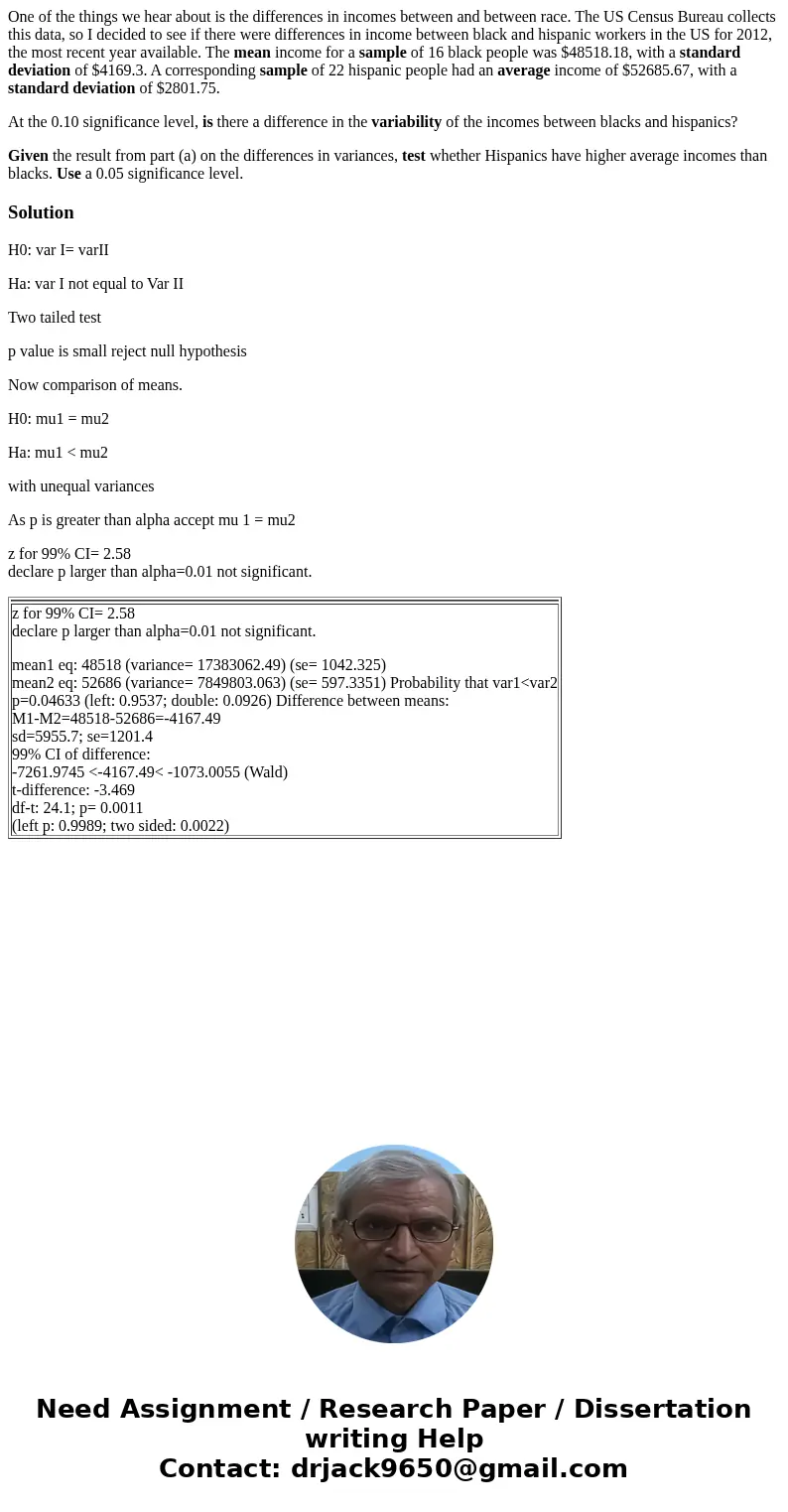One of the things we hear about is the differences in income
One of the things we hear about is the differences in incomes between and between race. The US Census Bureau collects this data, so I decided to see if there were differences in income between black and hispanic workers in the US for 2012, the most recent year available. The mean income for a sample of 16 black people was $48518.18, with a standard deviation of $4169.3. A corresponding sample of 22 hispanic people had an average income of $52685.67, with a standard deviation of $2801.75.
At the 0.10 significance level, is there a difference in the variability of the incomes between blacks and hispanics?
Given the result from part (a) on the differences in variances, test whether Hispanics have higher average incomes than blacks. Use a 0.05 significance level.
Solution
H0: var I= varII
Ha: var I not equal to Var II
Two tailed test
p value is small reject null hypothesis
Now comparison of means.
H0: mu1 = mu2
Ha: mu1 < mu2
with unequal variances
As p is greater than alpha accept mu 1 = mu2
z for 99% CI= 2.58
declare p larger than alpha=0.01 not significant.
| z for 99% CI= 2.58 mean2 eq: 52686 (variance= 7849803.063) (se= 597.3351) Probability that var1<var2 p=0.04633 (left: 0.9537; double: 0.0926) Difference between means: M1-M2=48518-52686=-4167.49 sd=5955.7; se=1201.4 99% CI of difference: -7261.9745 <-4167.49< -1073.0055 (Wald) t-difference: -3.469 df-t: 24.1; p= 0.0011 (left p: 0.9989; two sided: 0.0022) |

 Homework Sourse
Homework Sourse